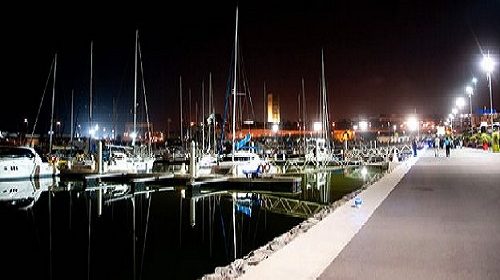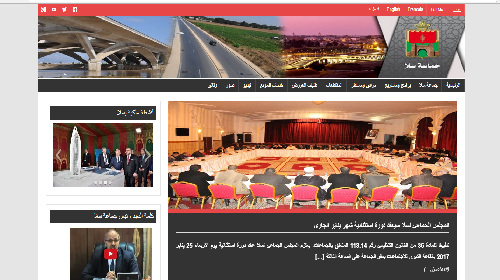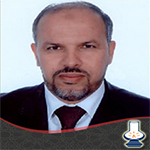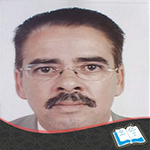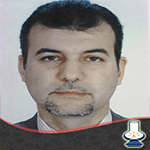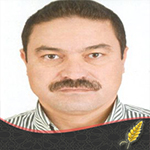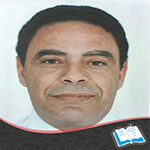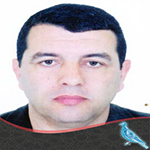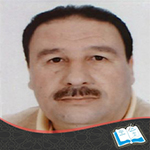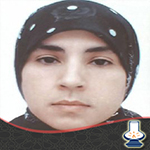Digitizing the services of the civil status “an ambitious project to serve citizens” :
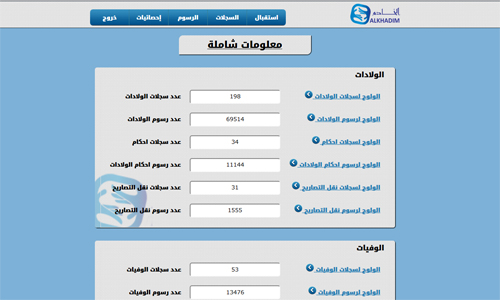
In the frame of efforts to modernize the communal administrative services directed to citizens , Sale commune started a comprehensive project to update the services of the civil status. To achieve this ,many deals were concluded related to rehabilitation of the administrative bureaus of the civil status and equip them with necessary tools and train functionaries responsible for these bureaus. The general objectives of the project revolve around improving the conditions of work of employees of these bureaus and presenting a better service for citizens through:
- Managing the bureaus of the civil status by adopting the open space.
- Equipping the bureaus of the civil status with the furniture of the bureaus and informatics equipment.
- Digitizing civil status files ( more than five hundred thousand acts) and the adoption of a digital application to use them and the provision of an electronic data basis to the documents of the civil state in a way that adopts new technologies.
- Providing the bureaus of the civil state with equipments to organize queuing and with surveillance cameras.
The adoption of a special informatics program for local taxes:
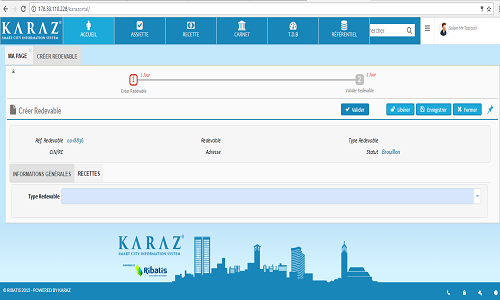
To develop its financial resources and to develop its private earnings through the promotion of material and human resources to get local taxes, the communal council of Sale adopted a special informatics program which enables the agencies of earnings in the commune and the other communal services related to it like the urbanization services and communal and technical services and others to list all the concerned people and deal with their files and collect taxes and this through an efficient automatic manner and with a total respect of the deadlines and regulations in effect.
This program will enable to:
- The general automation to manage local taxes .
- Providing the necessary information for decision taking.
- Quickening the operations and regulations of management.
- Automatic control and follow up of different files.
The single window for construction permissions with high professional qualities:
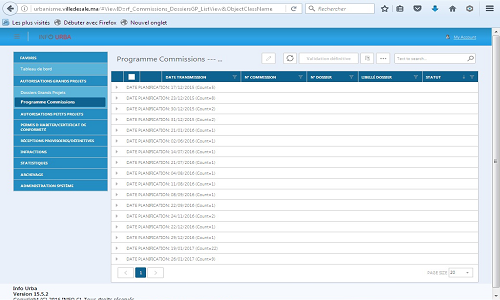
Accompanying the new legal developments which the sector of urbanization knows, and which aim at providing the necessary conditions to develop it and guarantee its satisfaction to the needs of citizens and investors, through implementing the policy of simplifying the rules and the steps of studying different projects, Sale commune set up the single window for the permissions of construction which the law decrees according to the text number 2.13.424 issued on 24th may 2013, and which is related to agreeing on the general condition of construction which determines the shape and the conditions of submitting permissions and the documents needed according to the legislation rules related to construction and real estate and the division of real estate and the issued texts to apply them.
The single window for permissions of construction is considered the only interlocutor to those concerned. It takes care of following the track of applications starting from the time of submission to getting permissions, and for this purpose, it puts under their disposition all the necessary information related to the documents needed for the files of permission demands and the regulations and ways of giving them and the processing situation of studying those files. It was constructed with modern architectural characteristics and it is equipped with all the assisting means of perfect management of the files of permission demands and the good reception of citizens. In addition, it was also equipped with a modern numerical system determining long distance reception appointments and receiving and dealing with demands of different permissions in an electronic manner.
Adoption of a strategy and a planning for communication : For an efficient communication to a civic commune:
In the context of promoting the level of communication be it internal or external , since it is considered an essential pillar to communal work and bridging gaps and guaranteeing interaction with partners and enabling inhabitants to information and assuming their obligation in suggesting and evaluation , the commune of Sale , under the frame of the agreement it signed with the program of local governance, prepared a strategy and a planning of communication specific to the commune and its five districts, and which enables organizing and institutionalizing communication operations on all levels.
A work team formed of a group of employees of the commune and districts under the supervision of an expert charged from the program was charged of shaping a strategy of communication based on the institutional , legal and constitutional references which stressed on the right of citizens to access to information and on the role of communication in simplifying the management of general local affairs .
The period of preparing this strategy was an occasion to diagnose the situation of communication in the commune through focus on weakness and strength points and also the challenges and opportunities which are considered as starting points which help in shaping a work plan to control an efficient communicational relationship between concerned parts.
In application to the strategic vision of communication which form the essential core of communication operation, the commune adopted a realistic communicational plan for a period of three years which includes 82 pragmatic measures .
Creating a section for informatics and communication systems:
The new systems of information depending on new technologies in mass media and communication have become an essential pillar to modernize communal administration and compatibility with the public policy in this field which aims at moving to a general electronic administration, a special sector for information systems and communication was created to take part in this development and keeping up with it.
This sector especially takes care of supervising the development and performing informatics applications and systems suitable to different communal services according to the regulations in effect, and the preparation of data bases to enable users of precise information which enable them of good management of the local situation. The service also works on managing the informatics of the commune ( equipments, webs…) and maintaining them and taking measures to protect them from dangers, besides presenting different forms of support and assistance to the users of equipments and informatics programs, and generalizing the services of electronic communication on all the functionaries of communal services.
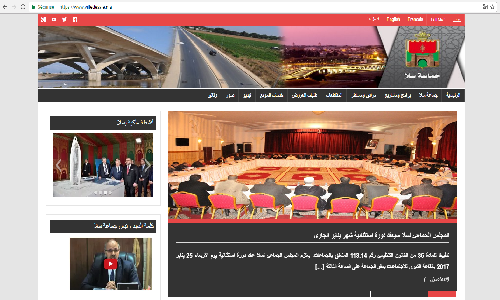
It also takes care of preparing and coordinating different operations of internal and external communication addressed to the public and to mass media and to different partners by depending on necessary means to cover different activities of communal services through preparing and publishing pamphlets and periodicals and continuous updating of the content of electronic website of the commune and other communicational means.
Creating a special cell to follow up citizens complaints:
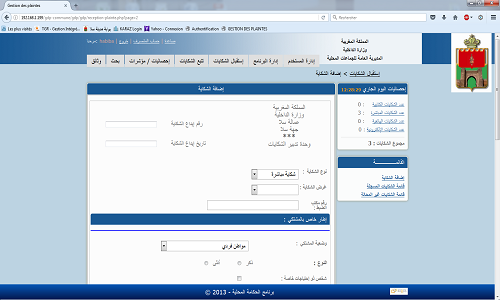
The issue of managing complaints takes a big importance from the side of the communal council of Sale since it has a direct effect on the relationship between the administration and its people. For this purpose, the communal council of Sale created a cell which takes care of presented complaints according to criteria agreed upon and through a specific methodology in answer to citizens expectations and therefore the effective contribution to achieve good governance to communal administration and improve its services.
The cell receives citizens complaints addressed to the commune either in a direct way or through the central bureau of control or through the service meant for that in the electronic window of the commune , and it studies them ;follows their course and result in coordination with all the concerned services and communal sectors. And for this purpose, the cell participates in diagnosing and attending to term meetings in the office of the general secretariat or in the administration annex under whose territory the complaint takes place .
Strengthening internal control through creating a section for examination:
For the sake of consolidating the control of administrative work , the implementation of projects , and the evaluation of works and activities as an embodiment to the rules of good governance , there was the creation of the service of internal investigation whose task is to activate the terms of reference of control given to the head of the communal council, and it contributes through the works of evaluation it applies and the recommendations it issues in the efficient guidance of the commune , and for that it prepares the plans of internal investigation and updates the map of the risks of the commune and gives close attention to the implementation of the tasks of control and examination and to preparing reports about them and follows the course of the activation of recommendations issued from the unit of internal investigation or the external institutions of control and examination together with preparing the plans of formation and finishing expertise for the benefit of the employees of the sector and updating the program of promoting excellence meant for the activities of investigation.
